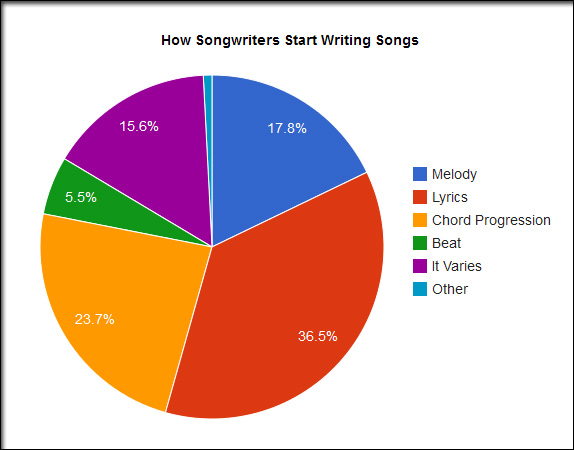5 Songwriting Lies You Tell Yourself about and the Actual Truth

 Songwriting is more than hard – it is complex, challenging, and requires a great deal of inspiration. There’s a good reason why so few people are known for their songwriting skills. You don’t start songwriting without having a really good plan, without possessing the right skills, and without the proper confidence in yourself and your resources.
Songwriting is more than hard – it is complex, challenging, and requires a great deal of inspiration. There’s a good reason why so few people are known for their songwriting skills. You don’t start songwriting without having a really good plan, without possessing the right skills, and without the proper confidence in yourself and your resources.
When you miss some of these things, you start telling yourself lies. ZipJob and Velvetjobs are two of the companies that are predominantly studying the performances of songwriters worldwide. They are in touch with over one hundred experienced songwriters and perform various studies to acquire relevant data about the industry.
There are two more companies AssignmentMan and Rushmyessay) that happen to actively study and analyze the same thing – songwriters’ qualities, goals, performances, and anything related to their activity.
By looking through all the available case studies that these companies have generously put at my disposal, I have managed to define 5 common and dangerous lies that songwriters frequently tell themselves (and the actual truth).
Ready to find out? Pay attention and be honest with yourself while reading this information attentively!
You Think Songwriting is All About Inspiration
First of all, how do I know about all these studies?
I used to offer assignment help online. Even though this was a paper writing service, I used to have songwriters as clients. Their primary needs? Inspiration.
When I asked all of them where does inspiration come from, it seemed that none of them had a concise answer. It’s a paradox – just like most people have no idea why they were born in this world, it goes the same with songwriters.
Inspiration’s both intrinsic and extrinsic. When it comes from the “inside”, you are effectively transferring the right “tools” from the subconscious mind to the conscious one. Ideas, memories, and thoughts.
When it comes from the “outside”, your environment (and the situations that you put yourself in) allow you to create or remember specific connections. For example, by visiting a countryside place where you used to hang around while you were a child can bring certain memories, moods, and ideas for your next song.
Nevertheless, inspiration (even though important) is not the only thing that influences or defines your songwriting performance. It’s your mindset, habits, consistency, human resources, and proactivity that allow you to skyrocket your journey. Inspiration is just a relatively small piece of the pie and comes once you’re doing great with the other things.
You Think You Need to Study More Before Composing
There are so many talented want-to-be songwriters that simply fail to become successful due to their pressing need to “learn more”, “practice more”, or “be more” all the time, never feeling ready to put what they’ve already learned into real practice.
Well, if you’re in this stage for more than a few years now, this could be considered a procrastination syndrome. The theory is the yin, while the experience is the yang. You need both yin and yang to have the complete puzzle, and it works the same with songwriting.
You Think Your Lyrics are Mediocre
“My lyrics suck” is the worst excuse a songwriter can make in order to delay songwriting. Tastes are subjective – one people will hate it, one will love it.
If you manage to put your work in the hands of people who actually enjoy your art, you might be surprised by the results. Songwriting is all about confidence. Your words bring a message – they are not just words that are sung in a tone that sounds nice. The more confident you are while writing them the better they’ll be.
Therefore, when you think that your lyrics are mediocre, just ignore these thoughts like you were blindfold. Focus on showing your genuine passion and let your work be judged afterward.
You Think You Have to Do It All Alone
Theoretically, songwriting is about writing songs. Practically, it involves many other processes that a songwriter may not handle. As an example, you’ll often need an editor and a digital marketer to help you consolidate and then promote your work.
You may be a great songwriter, but if you are not able to reach the right persons (with the right pitch) you won’t be able to take advantage of your completed works.
Therefore, if you think you have to do everything alone, stop doing that and start assessing your outsourcing or collaboration options and needs.
You Think You Need to See Immediate Positive Feedback
Songwriters are often sensible individuals who pressingly need to know whether they’re on the right path or not. For that reason, many of them seek immediate feedback to ensure that they’re not creating something that might make them feel ashamed or “not good enough”.
If you think you need immediate positive feedback to thrive as a songwriter, think again. Every major success (in every possible field) is achieved after reasonable numbers of tries. You need to fail in order to find out what you need to improve, and you need to be consistent and resilient whenever facing negative feedback.
Songwriting is a war, not a battle. A journey and a process, not a result and neither an achievement. Start perceiving it properly to ensure you don’t run out of faith in the middle of the process. Giving up is not an option, regardless of the feedback you’ve been given!
Takeaways
When I didn’t know what songwriting might involve, I used to think that it’s no harder than offering cheap writing services (like I used to do for a long time). Nevertheless, the process is complex and the degree of resources you need to have during the songwriting journey depends entirely on your goals and expectations.
Nevertheless, mindset is the #1 key to a successful songwriting journey. Stop telling yourself things in order to delay writing that song. Stop putting yourself down for not getting it right at first. Stop allowing fear to dictate your future. Just…start writing!







Leave a Reply